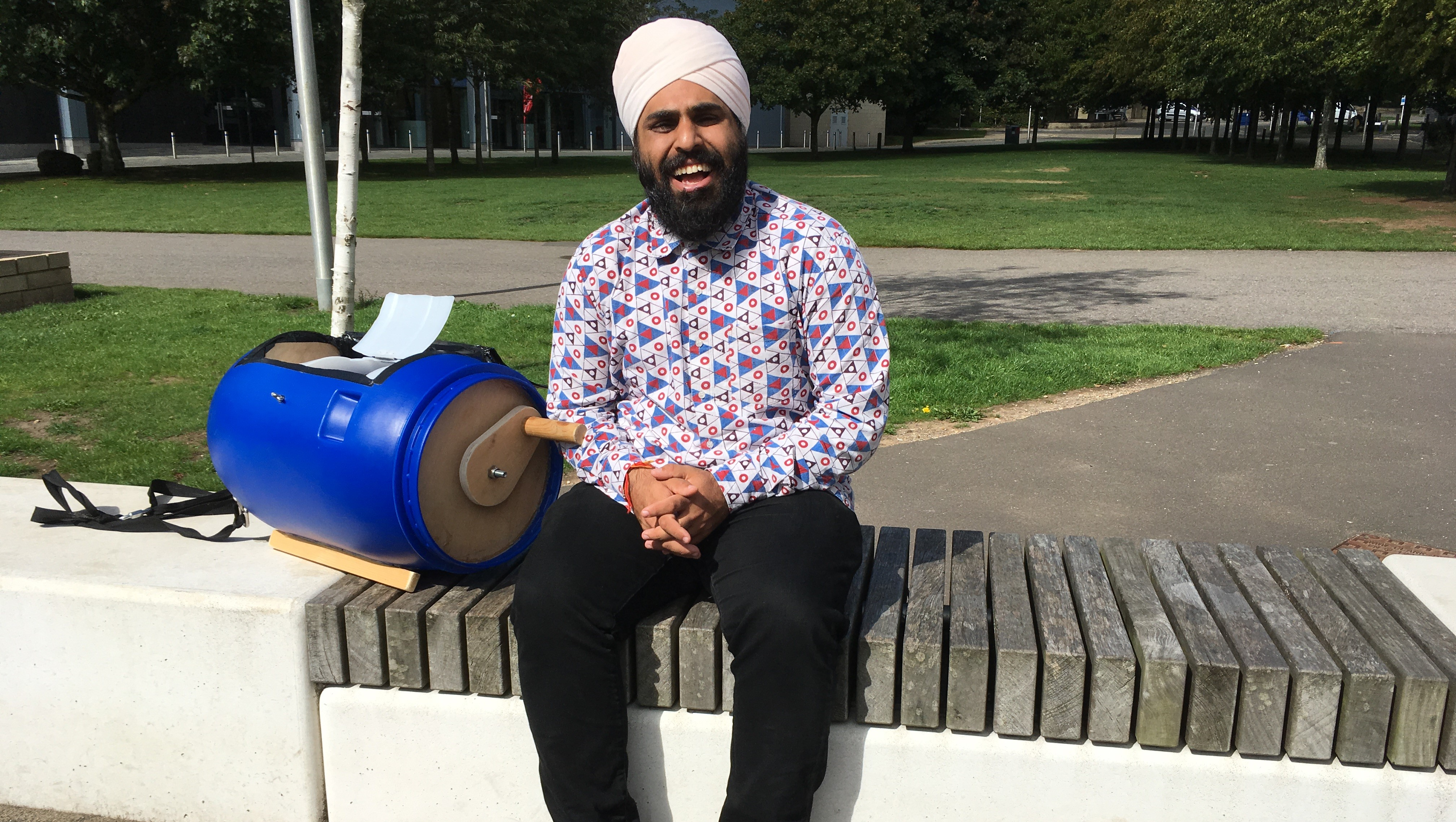I was working as an engineer for a reputable, global technology company on a grad programme. Three years later, I quit my job.
I was fed up with making domestic appliances for the wealthy – I wanted to make products that would help people in need. I volunteered for Engineers Without Borders UK, making clean and efficient cook stoves in South India. That’s when I knew I wanted to do this for the rest of my life.
I came back to the UK and started The Washing Machine Project – a social enterprise designed to ease the burden of hand-washing clothes for displaced people – but I also wanted to combine my passion for humanitarianism with academic studies, to formalise my experience.
I found the master’s in Humanitarianism, Conflict and Development at Bath, which caught my interest straight away because of the blended learning aspect.
Online learning

My course mates were based all around the world, across ten different time zones. There were some fascinating characters, including senior directors, fresh graduates, teachers, dancers, language specialists, and everything in between.
The course was all online but there were residentials at the University of Bath and the Azraq refugee camp in Jordan. The academics are incredible and really give you the time and attention that that you need sometimes. The course really equipped me with a practical understanding of how humanitarianism works.
In terms of core skills, I knew nothing about humanitarianism. I didn't know who to approach, what sensitivities there were in terms of safeguarding, the role of the UN and its agencies. The course really taught me the lay of the land.
I had the engineering skills to create a manual-drive washing machine, but I didn’t know who was going to use something like this, or what solutions already exist. What’s the etiquette of taking pictures of refugees? Those are some of the very practical things you learn.
This is such a perfect course for people who are trying to get into this field. Gen Z is angry right now at the world that they're inheriting, and they want to change things but may not know how. Courses like this equip you with the skills.
My urgency is to get more people from STEM backgrounds to get involved because it's the scientists, engineers, and mathematicians that are creating solutions that could help or hinder generations to come.
Now is a really good time to upskill
If you're thinking about what you want to do next, a master’s course is a great opportunity to train in an area that interests you.
I’m a mentor for students on the Humanitarianism, Conflict and Development course and one piece of advice I give is to not take yourself too seriously. When I was doing my dissertation, I felt like I needed to show something before every meeting with my supervisor. But actually, it’s really important to ask, ‘where do I go next?’. This fixation on always trying to deliver is not very helpful sometimes.
Looking to the future
My short-term goal is to positively impact 100,000 people, saving over 1 million litres of water through The Washing Machine Project.
We want to become an innovation hub for the humanitarian world. They don't need £500 vacuum cleaners. They need lights. They need to be given time to prosper.
We’ve just registered the Refrigeration Project, which is looking at off-the-grid refrigeration, and then we want to develop cook stoves and lighting.
We want to continue to work with academic institutions like Bath, and use that to inform research, as well as knock on the doors of government to legislate for policy change and advocate for innovation for disadvantaged people.


